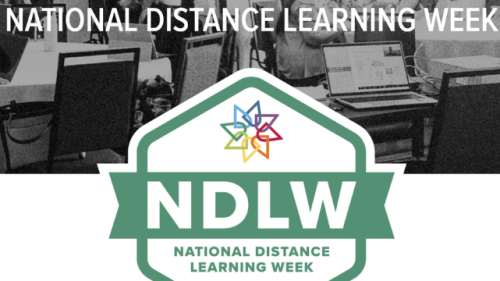When we ask what organization has the goal of maintaining international peace and security, an answer that quickly comes to mind is the United Nations (UN). Founded in 1945, in the aftermath of World War II, its central mission is “the maintenance of international peace and security.”1 However, with today’s interconnected world and challenging cross-border issues, there are many peacekeeping groups that work together to help maintain stability around the world. In addition to the UN and its different bodies, including the General Assembly and Security Council, there are strategic partners, governmental and non-governmental organizations, and a vast array of independent nonprofit research facilities and advocacy organizations, all focused on global peace and security.
Therefore, the question “What organization has the goal of maintaining international peace and security?” has a complicated, multi-faceted answer. It is through the collaboration of intergovernmental peacekeeping groups worldwide that complex global issues are addressed.2
Read on for information about a number of those collaborative partners.
Defining International Peace and Security
In the UN charter, the Security Council is tasked with maintaining global peace and security. It notes that the peacekeeping and security mission is designed to:
- Save future generations from devastating wars
- Reaffirm and uphold fundamental human rights in all nations
- Establish conditions in which treaty obligations and other international laws are respected and honored
- Promote social progress and higher living standards3,4
Fulfilling the UN Peacekeeping Mission
The Security Council may receive intelligence about a threat to a region’s peace, and it may recommend that the parties in disagreement reach a peaceful settlement. This can include an investigation and mediation by the council. The Secretary-General of the UN may become involved in appointing a representative who can also bring a situation to the Security Council’s attention. The UN General Assembly can make recommendations for maintaining peace and security, including a call for disarmament and the establishment of a mutually agreed-upon settlement. If fighting begins, the UN may issue a ceasefire directive. It might also deploy its own peacekeeping forces to the area to reduce hostilities, keep warring factions at a distance, help to mediate a settlement and create conditions for a sustainable peaceful solution.
The UN is involved in conflict prevention, peacekeeping, peacebuilding and maintaining the rule of law. It has also been involved in removing landmines and supporting women and children in conflict zones.4,5 In addition, the United Nations Peacebuilding Commission (PBC), an intergovernmental advisory board of 31 member states, supports peace efforts in countries experiencing conflict.6
Beyond the UN: Other Global Peacekeepers
Many governmental and non-governmental organizations are devoted to global peace and security. Some work in partnership with the UN and other intergovernmental groups. Key among them are these:
The North Atlantic Treaty Organization (NATO)
Founded in 1949 in Washington, D.C. and with headquarters in Brussels, Belgium, NATO is an intergovernmental military alliance between 30 North American and European countries. Its mission is to “guarantee the freedom and security of its members through political and military means.”7 The organization promotes democratic values and endeavors to prevent conflict through peaceful resolutions. If a peaceful resolution cannot be achieved, it can carry out military operations under its treaty, by a UN mandate, or in cooperation with other countries and organizations.
The Organization for Security and Cooperation in Europe (OSCE)
With 57 participating states, the OSCE is the world’s largest intergovernmental organization focused on global security. It was founded in 1975 and is based in Vienna, Austria. Its focus is on issues such as arms control, security building, counter-terrorism, freedom of the press, the promotion of human rights, environmental activities and fair elections.8 In its comprehensive approach, it addresses the economic, environmental, politico-military and human aspects of security.
The Peace and Security Council (PSC) of the African Union (AU)
The Peace and Security Council is the decision-making body of the African Union, tasked with the “prevention, management and resolution of conflicts.”9 The organization provides timely, efficient responses to conflicts and other crises in Africa, and is central in the African Peace and Security Architecture (APSA), which helps maintain stability within the region. Among other responsibilities, the PSC anticipates and prevents conflicts, undertakes peace-making and peace-building activities, helps facilitate humanitarian efforts and institutes sanctions when deemed necessary.
The European Commission (EC)
The European Commission is the executive arm of the European Union. The group proposes, manages and enforces EU laws, and represents all EU countries. In the realm of international peace and security, the EC supports the efforts of their member countries by collaborating to establish the rule of law, prevent and bring an end to violence and mitigate global threats such as terrorism. The EC also helps partners handle the aftermath of natural disasters and armed conflicts.10
Make Your Contribution to Global Security
Today’s global crises include regional conflicts, violent protests in multiple places and mass migrations brought about by climate change and the global coronavirus pandemic.11,12
Be part of the solution. Advance your career in homeland security and cybersecurity. Kent State’s online Master of Arts in Criminology and Criminal Justice program, with a concentration in Global Security, focuses on critical issues and the latest practices in facing traditional and emerging threats.
Sources:
- Retrieved on August 11, 2020 from un.org/en/sections/what-we-do
- Retrieved on August 11, 2020 from peacepalacelibrary.nl/research-guides/war-and-peace/international-peace-and-security/
- Retrieved on August 11, 2020 from un.org/en/sections/un-charter/un-charter-full-text/
- Retrieved on August 11, 2020 from un.org/en/sections/issues-depth/peace-and-security/
- Retrieved on August 11, 2020 from peacekeeping.un.org/en
- Retrieved on August 11, 2020 from un.org/peacebuilding/commission
- Retrieved on August 11, 2020 from nato.int/nato-welcome/index.html
- Retrieved on August 11, 2020 from osce.org/
- Retrieved on August 11, 2020 from https://au.int/en/psc
- Retrieved on August 11, 2020 from ec.europa.eu/international-partnerships/priorities/resilience-peace-and-security_en
- Retrieved on August 11, 2020 from brookings.edu/research/the-climate-crisis-migration-and-refugees/
- Retrieved on August 11, 2020 from weforum.org/agenda/2020/04/we-need-major-cooperation-on-global-security-in-the-covid-19-era/






